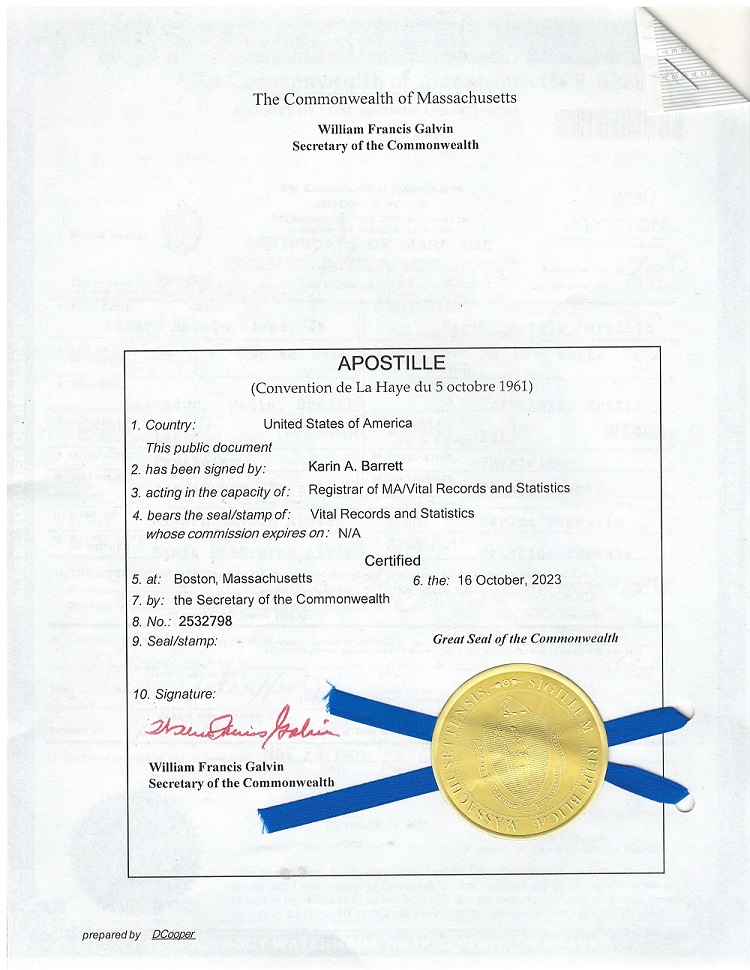Apostille Providers in Houston: Simplify Your Document Legalization
Apostille Providers in Houston: Simplify Your Document Legalization
Blog Article
Exploring the Reasons Behind the Compulsory Demand of Apostille Accreditation for Legal Documents
In the realm of legal paperwork, the necessary demand of apostille accreditation has become a vital element that considerably impacts the validity and acknowledgment of lawful papers on an international scale. Recognizing the reasoning behind this requirement includes delving right into the detailed internet of legal intricacies, historic precedents, and global agreements that emphasize the value of apostille accreditation in today's interconnected world. By discovering the underlying factors behind this widespread requirement, a more clear picture emerges of why this apparently administrative process holds such immense value for companies, people, and governments alike.
Historic Development of Apostille Qualification
Just how did the idea of apostille accreditation advance with time to end up being a vital part of worldwide document recognition? The historic development of apostille qualification go back to the very early 20th century. The need for a streamlined method of verifying records for use throughout boundaries ended up being noticeable as international profession and traveling increased. In action to this need, the Hague Seminar on Exclusive International Law introduced the Apostille Convention in 1961. This worldwide treaty established a structured procedure for certifying the authenticity of records to be recognized in member nations.
At first embraced by a couple of European countries, the Apostille Convention progressively obtained global acceptance due to its efficiency and performance in validating the authenticity of main documents. For many years, the convention's reach increased as even more nations signed up with, identifying the apostille as an universally accepted form of file authentication. Today, apostille accreditation has ended up being a common need for confirming lawful documents in global purchases, making certain smooth interaction and lawful procedures in between nations.
Simplifying International Document Legalization
The streamlining of global file legalisation procedures has significantly improved performance in cross-border transactions. Streamlining the procedure of legalizing papers for international use has actually become vital in helping with swift and seamless purchases in between countries. One of the vital mechanisms that have added to this simplification is the adoption of the Apostille Convention, which supplies a standard approach for confirming the credibility of files across participating nations.
By adhering to the Apostille demands, countries concur to identify each various other's public records as legitimate without the need for further legalization. This eliminates the lengthy and commonly difficult procedure of numerous verifications by various authorities, conserving time and sources for services and individuals participated in worldwide activities.

Ensuring Record Credibility and Credibility
To guarantee the credibility and legitimacy of legal documents in global deals, strict confirmation procedures are important - Houston Apostille. Lawful documents play an important role in cross-border ventures, and ensuring their legitimacy is vital to support the honesty you could try this out of such deals. By requiring apostille qualification for legal documents, authorities aim to confirm the origin of documents and confirm the signatures of people involved. This procedure helps stop fraud, misstatement, and other negligences that can endanger lawful proceedings or worldwide arrangements.
Furthermore, validating the credibility of legal files via apostille certification enhances depend on and self-confidence among parties taking part in global purchases. It provides assurance that the papers presented are genuine and lawfully binding, consequently lowering the risks related to deceptive activities. Furthermore, ensuring file credibility with apostille accreditation streamlines the legalisation procedure, making it extra reliable and reliable for people and companies carrying out service throughout borders. Inevitably, by supporting stringent verification standards, apostille certification adds to a more safe and secure and clear global lawful structure.

Helping With Cross-Border Legal Recognition
In the realm of global purchases, the apostille accreditation not only ensures the credibility and legitimacy of legal papers however also plays a crucial duty in helping with cross-border legal acknowledgment (Houston Apostille). When legal papers birth an apostille certificate, they are easily approved by foreign authorities without the need for more verification. This streamlined procedure speeds up the recognition of records in different nations, promoting efficiency and lowering bureaucratic difficulties in legal issues that go beyond national limits
Promoting cross-border lawful recognition with apostille accreditation cultivates trust and confidence in the authenticity of find more info papers exchanged in between nations. By sticking to the standards set forth by the Apostille Convention, nations agree to honor the apostille seals attached to papers from various other member countries, therefore streamlining the procedure of lawful acknowledgment throughout boundaries.
Conformity With International Treaty Requirements
Compliance with global treaty standards is vital for guaranteeing the uniform application of legal policies across participating countries. The Apostille Convention, established in 1961, outlines the requirements for the approval of public files among participant countries.
The Apostille qualification, as mandated by the treaty, acts as a guarantee of credibility for papers such as birth certifications, marital relationship licenses, court judgments, and notarized actions. This standard technique helps protect against scams and ensures that lawful papers stemming from one participant country are easily accepted in an additional. Furthermore, by abiding with worldwide treaty standards, nations show their commitment to promoting the principles of openness, trust, and participation in legal issues on a global scale.
Conclusion

In the world of lawful documents, the necessary demand of apostille qualification has actually become a vital facet that significantly impacts the credibility and recognition of legal documents on an international scale. Today, apostille accreditation has actually ended up being a basic need for validating legal papers in international transactions, making sure smooth interaction and lawful process in between countries.
In addition, validating the credibility of lawful records via apostille certification boosts trust fund and self-confidence amongst celebrations engaging in international transactions.In the realm of international purchases, the apostille qualification not just makes sure the credibility and credibility of lawful records yet additionally plays a crucial function in assisting in cross-border legal acknowledgment. By adhering to the standards set forth by the Apostille Convention, countries concur to honor the apostille seals affixed to records from various other member nations, hence streamlining the procedure of lawful recognition throughout boundaries.
Report this page